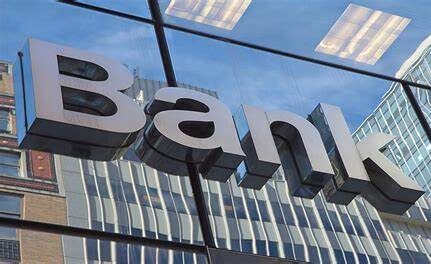Impact Banks – Banks play a pivotal role in the foreign exchange (forex) market, influencing currency rates through their operations, trading strategies, and monetary policies. Understanding how banks affect forex rates can provide valuable insights for traders, investors, and anyone involved in global finance. This article explores the mechanisms through which banks impact forex rates and the broader implications for the currency market.
The Role of Banks in the Forex Market
Major Market Participants
Banks are among the largest participants in the forex market. They facilitate currency transactions for their clients, including corporations, governments, and other financial institutions. Additionally, banks engage in proprietary trading, where they trade currencies for their own accounts.
Forex Trading Operations
Banks execute vast amounts of currency trades daily, contributing to the overall liquidity of the forex market. Their trading activities can significantly influence currency supply and demand, thereby affecting forex rates.
How Banks Influence Forex Rates
Central Bank Policies
Central banks, such as the Federal Reserve and the European Central Bank, have a direct impact on forex rates through their monetary policy decisions. Key aspects include:
- Interest Rate Changes: Central banks set benchmark interest rates, which influence currency value. Higher interest rates typically attract foreign capital, leading to currency appreciation, while lower rates can lead to depreciation.
- Quantitative Easing: When central banks implement quantitative easing (QE), they inject liquidity into the economy by purchasing government securities. This can lead to currency devaluation as the money supply increases.
Market Sentiment and Speculation
Banks are not only participants but also influencers of market sentiment. Their trading decisions can sway investor confidence and expectations about future currency movements. For example:
- Speculative Trading: If banks anticipate a currency will strengthen, they may buy large amounts, prompting other traders to follow suit, further driving up the currency’s value.
- Market Reports and Analysis: Banks often release research reports and analyses that can impact investor perception and behavior. Positive outlooks on a currency can lead to increased buying pressure.
Currency Reserves and Interventions
Banks hold significant amounts of foreign currency reserves. Their decisions on how to manage these reserves can impact forex rates:
- Intervention in Forex Markets: Central banks may intervene directly in the forex market to stabilize or influence their currency’s value. For instance, they may sell their currency to weaken it or buy it to strengthen it.
- Reserve Management: Changes in reserve levels can signal to the market whether a central bank intends to influence its currency’s value, impacting trader sentiment and expectations.
The Interbank Market
Liquidity Provider
The interbank market is where banks trade currencies with one another. This market provides liquidity and sets the foundation for forex rates that retail traders encounter. Key features include:
- Bid-Ask Spreads: In the interbank market, banks quote bid and ask prices, and the spread between these prices reflects the market’s liquidity and the perceived risk of trading a particular currency.
- Rate Setting: The rates quoted in the interbank market significantly influence the rates offered to clients and retail traders.
Forex Brokers and Banks
Forex brokers often act as intermediaries between retail traders and the interbank market. They aggregate rates from multiple banks to provide competitive pricing to their clients. This relationship ensures that changes in bank rates quickly reflect in the prices available to individual traders.
The Broader Economic Impact
Currency Stability and Economic Health
The actions of banks can have broader implications for economic stability. For example, a stable currency can foster investor confidence, while excessive volatility may deter investment:
- Investor Behavior: Banks’ assessments of economic conditions can influence where investors choose to allocate their capital, affecting currency demand.
- Trade Balances: A strong currency can impact a country’s export competitiveness, influencing trade balances and, consequently, forex rates.
Geopolitical Events
Banks often react to geopolitical events, which can cause significant fluctuations in currency values. Their responses to such events can amplify market reactions:
- Crisis Response: In times of geopolitical uncertainty, banks may shift their trading strategies, impacting currency demand and leading to rapid changes in forex rates.
The Significance of Banks in Forex Rates
Banks are crucial players in the forex market, influencing currency rates through their trading activities, monetary policies, and market interventions. Understanding the mechanisms through which banks impact forex rates can help traders and investors make informed decisions.
For more insights into the forex market and the role of banks, you can visit Investopedia, a valuable resource for financial education.
By recognizing the influence of banks on forex rates, market participants can better navigate the complexities of currency trading and anticipate potential market movements.




